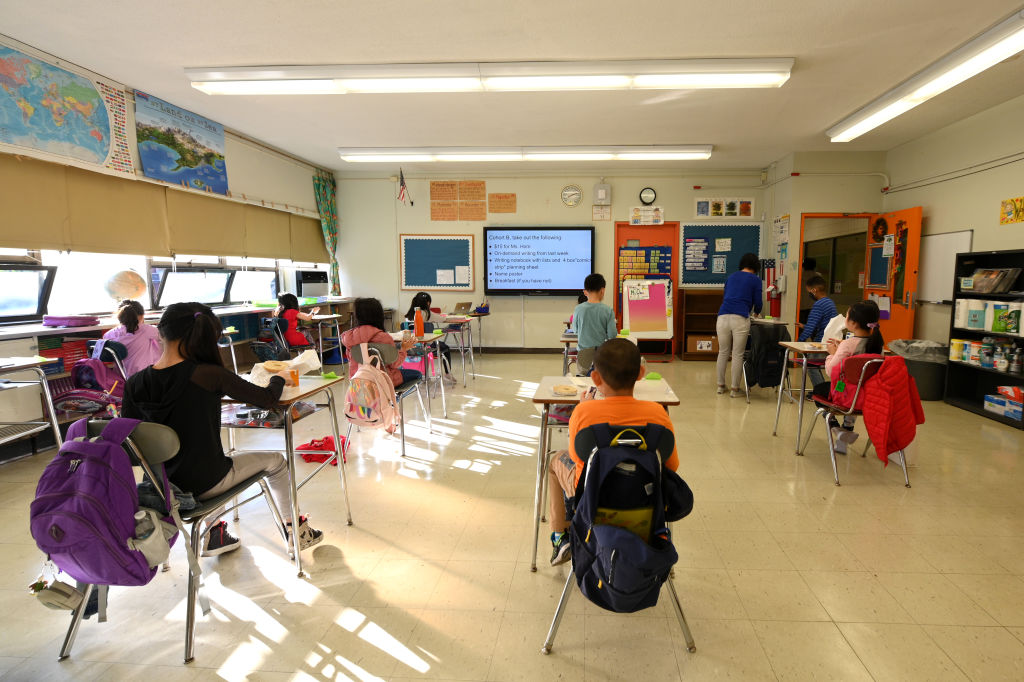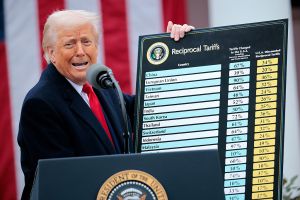Unless you work for the White House, where the emergency declaration doesn’t expire until May, the pandemic has long been over. March marks three years since Covid upended Americans’ lives and, for all but a tiny minority, it has ceased being a day-to-day consideration. After long and bruising fights over everything from lockdowns to vaccine mandates, perhaps the only thing Americans can agree on is that the country’s response to the pandemic was a failure.
From that starting consensus, arguments about what went wrong soon diverge sharply. The right has rediscovered its don’t-tread-on-me instincts and sees drastic public health measures, a censorious response to divergent scientific views and an unwarranted deference to “expertise” and authority as violations of individual liberty, none of which delivered the pandemic-fighting benefits they were said to bring. The left laments the “politicization” of the pandemic response, as though such things should be above politics, and sees a populist turn against “science” as the main failing of our virus response.
Even the folks who called the shots throughout the pandemic think we bungled things. When Anthony Fauci stepped down as director of the NIAID and White House pandemic advisor late last year, he lamented the “divisiveness” that had made it hard for him to do his job. Reading between the lines of his many exit interviews, what he seemed to really mean was that he regretted he had anything less than unquestioned authority in managing the country’s pandemic response.
A lot of this is gloomy stuff. American exceptionalism sometimes expresses itself as a self-loathing idea that when this country fails, it does so more spectacularly than anyone else. So it is with the virus. But America’s record on Covid is strikingly middle of the pack. The draconian Chinese approach marveled at by Western technocrats in 2020 and 2021 has since been revealed to be a draconian monstrosity. With some significant exceptions like school closures, the average American lived a much freer life during Covid than the average European. And any fair accounting of our pandemic response should consider Operation Warp Speed a massive positive. The program mixed deregulatory urgency and decisive government action to deliver vaccines in record time and save millions of lives. Three years on, Donald Trump is reluctant to talk about what was one of the greatest achievements of his presidency.
Now is not the time to revisit well-worn debates about lockdowns and mask mandates. The more pressing question is why, given America’s focus on the mistakes it made during the pandemic, we aren’t more focused on cleaning up the mess.
Hardly a week goes by without reminders of the ways in which we are still living in the pandemic’s shadow — especially when it comes to the lives of the young. Covid has brought other serious costs; it’s here that clean-up efforts should be focused. The residual effects of lockdowns and school closures have proved to be serious and sticky: learning loss, loneliness and lawlessness. These are grave problems without quick and easy solutions.
Those responsible for the school-closure disaster would like to put that mistake behind them and move on. But it’s clear by now that closures were a fork in the road for America’s public schools — and that they’re now on a disastrous new path. Nationwide, public schools have lost more than a million students since the start of the pandemic. Test scores are plunging, absence is a chronic issue and teen mental health is in a parlous state, with emergency rooms still seeing children reporting suicidal thoughts in far greater numbers than pre-pandemic. Violent juvenile crime is up, as are child overdose deaths.
The White House invokes the pandemic when it suits them: for the purpose of justifying unconstitutional student debt write-offs, for example. But it’s uninterested in any proper effort to clean up the school mess. Why? Because doing so would involve a damage assessment that would embarrass Democratic governors. It would also mean taking on teachers’ unions, powerful players in the Democratic coalition and embarrassing or contradicting the public-health “experts” and institutions that they have claimed are beyond reproach. And so we are stuck with an ongoing crisis that the president and his party would rather not talk about.
In fairness, the president has thrown money at the problem. The 2021 American Rescue Plan included $122 billion in emergency rescue funding for schools. It was the easiest answer for a president reluctant to start a fight with teachers. But only 20 percent of the funds had to be used to combat learning loss, and money clearly isn’t the main issue: so far school districts have only spent around a quarter of the additional cash.
The solution will require much more than sending money to school administrators. It calls for a far deeper assessment of what ails America’s kids and what can be done about it — and, as with much else about America’s pandemic response, it also demands honesty and accountability.
This article was originally published in The Spectator’s March 2023 World edition.

























